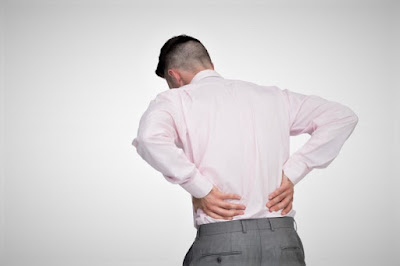Neck Pain: Causes and Treatment
The neck is a pretty amazing part of your body, but it has a tough job. It holds up the weight of a bowling ball all day long. The bones at the top of your spine, along with your muscles and ligaments, support your head. It can be a delicate balance. Anything from sleeping wrong to bad posture can cause neck pain.
The neck is made up of vertebrae that extend from the skull to the upper torso. Cervical discs absorb shock between the bones. The bones, ligaments, and muscles of the neck support our head and allow for motion. Any abnormalities, inflammation, or injury can cause neck pain or stiffness. Many people experience neck pain or stiffness and immediately rush to the critical care hospital in Nagpur. In many cases, it’s due to poor posture or overuse. Sometimes, neck pain is caused by injury from a fall, contact sports, or whiplash.
Most of the time, neck pain isn’t a serious condition and can be relieved within a few days.
But in some cases, neck pain can indicate serious injury or illness and require a doctor’s care.
If you have neck pain that continues for more than a week, is severe, or is accompanied by other symptoms, then you should visit the best hospital in Nagpur and seek medical attention.
What Causes Neck Pain?
Many things can cause your neck to hurt:
Poor posture
Repetitive motion
Bad sleep habits
Gritting your teeth
Carrying a heavy shoulder bag or purse
Pinched nerves
Sports injuries
Car accidents involving whiplash
Arthritis
Infection
Tumors
Poor posture
Repetitive motion
Bad sleep habits
Gritting your teeth
Carrying a heavy shoulder bag or purse
Pinched nerves
Sports injuries
Car accidents involving whiplash
Arthritis
Infection
Tumors
How you treat it?
With treatment, your neck will stop hurting in a few days in most cases. Use medicines like aspirin, Ibuprofen or Tylenol. Put an ice pack on your neck for the first 2 to 3 days to help lower swelling. After that, use moist heat, like a hot shower or a heating pad to help it heal. There are also exercises you can do at home (or in front of your computer at work) to gently stretch your neck muscles.
With treatment, your neck will stop hurting in a few days in most cases. Use medicines like aspirin, Ibuprofen or Tylenol. Put an ice pack on your neck for the first 2 to 3 days to help lower swelling. After that, use moist heat, like a hot shower or a heating pad to help it heal. There are also exercises you can do at home (or in front of your computer at work) to gently stretch your neck muscles.
When to see your Doctor?
Call the doctor’s office if your neck pain is severe, doesn’t respond to treatment, gets worse over time, or includes numbness, weakness, or tingling and pain in the arms and legs.
Questions your doctor may ask:
When did the pain first start?
Have you been injured?
Do you have numbness or weakness in your arms or hands?
Does moving your neck in a certain way make things better or worse?
Call the doctor’s office if your neck pain is severe, doesn’t respond to treatment, gets worse over time, or includes numbness, weakness, or tingling and pain in the arms and legs.
Questions your doctor may ask:
When did the pain first start?
Have you been injured?
Do you have numbness or weakness in your arms or hands?
Does moving your neck in a certain way make things better or worse?
Does coughing or sneezing make the pain worse?
Your doctor has many tools to figure out what’s wrong. He could order X-rays, an MRI, CT scan, EMG (electromyography), or blood tests.
Some treatments could include muscle relaxants, physical therapy, a padded neck collar, or traction.
In rare situations, shots of cortisone or surgery might be needed from the hospital.
Your doctor has many tools to figure out what’s wrong. He could order X-rays, an MRI, CT scan, EMG (electromyography), or blood tests.
Some treatments could include muscle relaxants, physical therapy, a padded neck collar, or traction.
In rare situations, shots of cortisone or surgery might be needed from the hospital.
How to avoid it?
The best way to keep from having neck pain is knowing how to prevent it.
Fix your posture to fix your neck pain. Sit or stand with your shoulders directly over your hips and your head straight. Adjust your chair or desktop so your computer monitor is at eye level. Take frequent breaks. Don’t tuck your phone between your ear and shoulder. Use a speakerphone or headset instead. Try not to carry heavy bags with shoulder straps.
Try a different pillow if you’re waking up with a stiff neck. Some people find that a relatively flat one, or one with a built-in neck support, works best. Sleeping on your back or side (not your belly) also allows your neck muscles and ligaments to get the rest they need.
There are a number of neck exercises you can do during the day, either sitting or standing. These simple exercises make your neck flexible and prevent stiffness or pain and are recommended by doctors from best hospital.
The best way to keep from having neck pain is knowing how to prevent it.
Fix your posture to fix your neck pain. Sit or stand with your shoulders directly over your hips and your head straight. Adjust your chair or desktop so your computer monitor is at eye level. Take frequent breaks. Don’t tuck your phone between your ear and shoulder. Use a speakerphone or headset instead. Try not to carry heavy bags with shoulder straps.
Try a different pillow if you’re waking up with a stiff neck. Some people find that a relatively flat one, or one with a built-in neck support, works best. Sleeping on your back or side (not your belly) also allows your neck muscles and ligaments to get the rest they need.
There are a number of neck exercises you can do during the day, either sitting or standing. These simple exercises make your neck flexible and prevent stiffness or pain and are recommended by doctors from best hospital.




Comments
Post a Comment